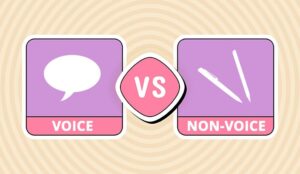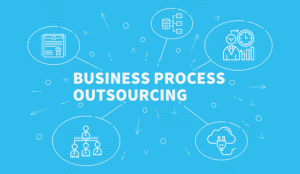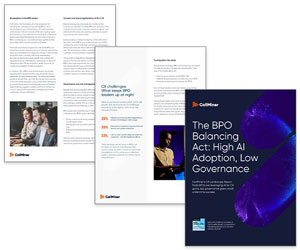In the world of contact centres and BPOs, customer interactions happen in two main ways – through voice and non-voice processes.
While voice processes involve direct conversations with customers over the phone, non-voice processes rely on emails, chats, and back-office tasks to provide support.
Understanding the differences between these two approaches is key to optimising efficiency, enhancing customer experience, and choosing the right strategy.
To help we’ve put together a quick overview of what Business Process Outsourcing (BPO) means, alongside the key distinctions between voice and non-voice processes.
What Is BPO?
BPO is an acronym for Business Process Outsourcing. It refers to a strategy that contact centres can use to scale their business, reduce operational costs, and streamline their processes by outsourcing to a third party. This allows them to better focus on their core functions.
BPOs started the boom of IT in the UK and, over the years, BPO business has matured in leaps and bounds. It’s currently a major contributor to the economy and provides a good variety of services. BPOs also extend to offshore corporations in India (for example).
BPOs are typically classified into two types: voice and non-voice. Both have paramount importance in customer service in supporting an omnichannel contact centre.
There Are Different Types of Business Process Outsourcing – Voice Process and Non-Voice Process
What is a Voice-Based Process in BPO?
A voice-based BPO process refers to speaking directly to customers on the phone, which could be a job in the form of sales or support.
These interactions can be at any stage of the customer journey – from the first customer interaction and after-sales services, to troubleshooting and technical support.
Typical Voice Processes Include
- Customer Service
- Speaking on the telephone to customers to resolve customer issues and complaints.
- Technical Support
- Assisting customers with technical problems such as troubleshooting software or hardware issues.
- Telemarketing
- Phoning customers to conduct market research or generate sales leads
- Collections
- Contacting customers to remind them of overdue payments and to collect the outstanding balance
- Order Processing
- Taking orders over the phone, and processing payments.
- Appointment Scheduling
- Setting appointments for sales calls, and medical consultations
Voice BPO processes can be further divided into the following two categories:
Inbound Calls
These are customer-initiated calls. For example, the result of a marketing campaign or an existing customer needing support.
BPO sales reps and service staff’s key role is to provide satisfactory answers to all types of customer queries, with a view to supporting long-term customer conversion and long-term retention.
Outbound Calls
These are calls to customers or prospects to support sales and marketing, or follow-up and surveys.
What is a Non-Voice Based Process in BPO?
These are typically jobs that do not require direct interaction or voice, but rather lead with knowledge. These jobs may include admin, as well as email handling, chat support, and messages.
In addition to sales and service, non-voice services may include HR, hiring, tech support, appointment scheduling, notifications, technical support, back-office processing, and other tasks for the outsourcing client.
Typical Non-Voice Processes Include
- Customer Service
- Handling customer enquiries, complaints, and support requests through emails, live chats, social media, and messaging apps.
- Content Moderation
- Monitoring and managing user-generated content on websites, social media platforms, and forums to ensure compliance with community guidelines and policies.
- Order Processing
- Managing financial transactions, such as order processing, billing, invoicing, and payment processing.
- Market Research
- Conducting surveys, analyzing data, and compiling reports to gather insights on market trends and customer preferences.
- HR Services
- Payroll processing, employee data management, recruitment support, and training administration.
- Technical Support
- Providing technical support through email or chat for software, hardware, and network-related issues.
- Account Enquiries
- Handling customer questions and requests related to their accounts, for instance producing statements.
Note: specialized skill sets may be necessary – in place of typical verbal or written communication – for back-office work.
For more articles on BPOs, read these next:
Author: Megan Jones
Reviewed by: Robyn Coppell
Published On: 14th Jul 2023 - Last modified: 25th Sep 2025
Read more about - Definitions, Business Process Outsourcing (BPO), Terminology




































